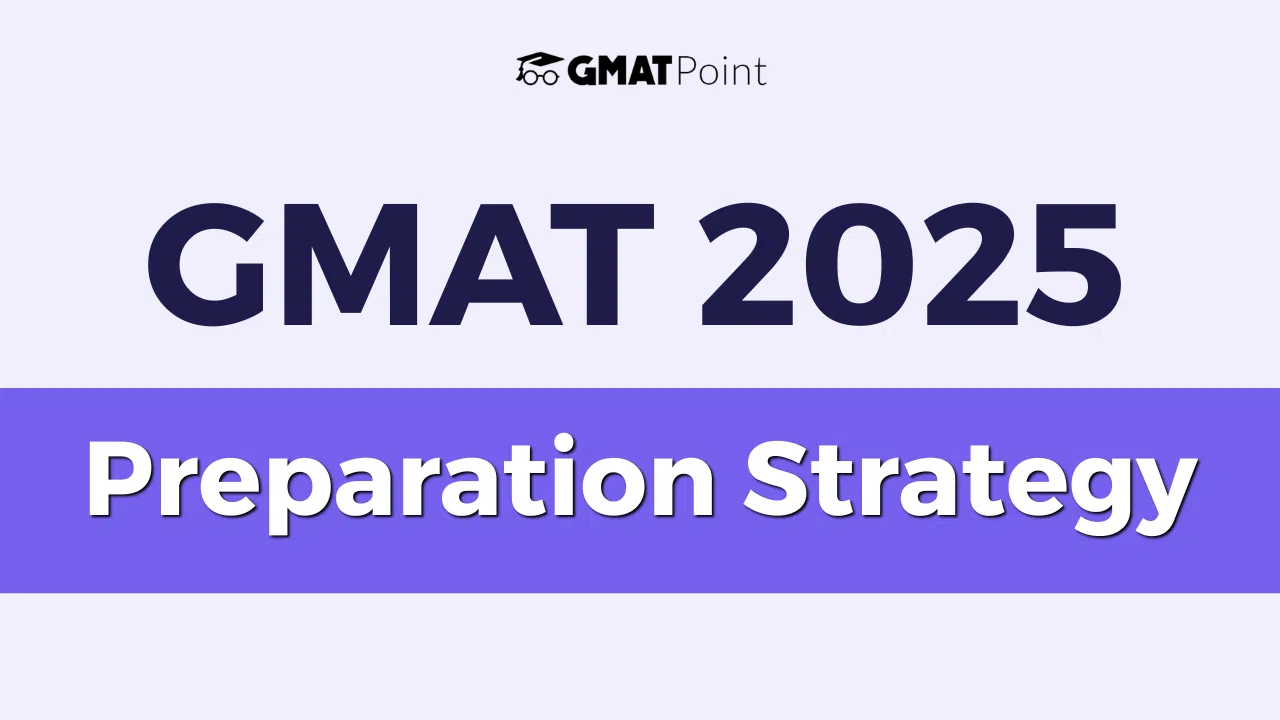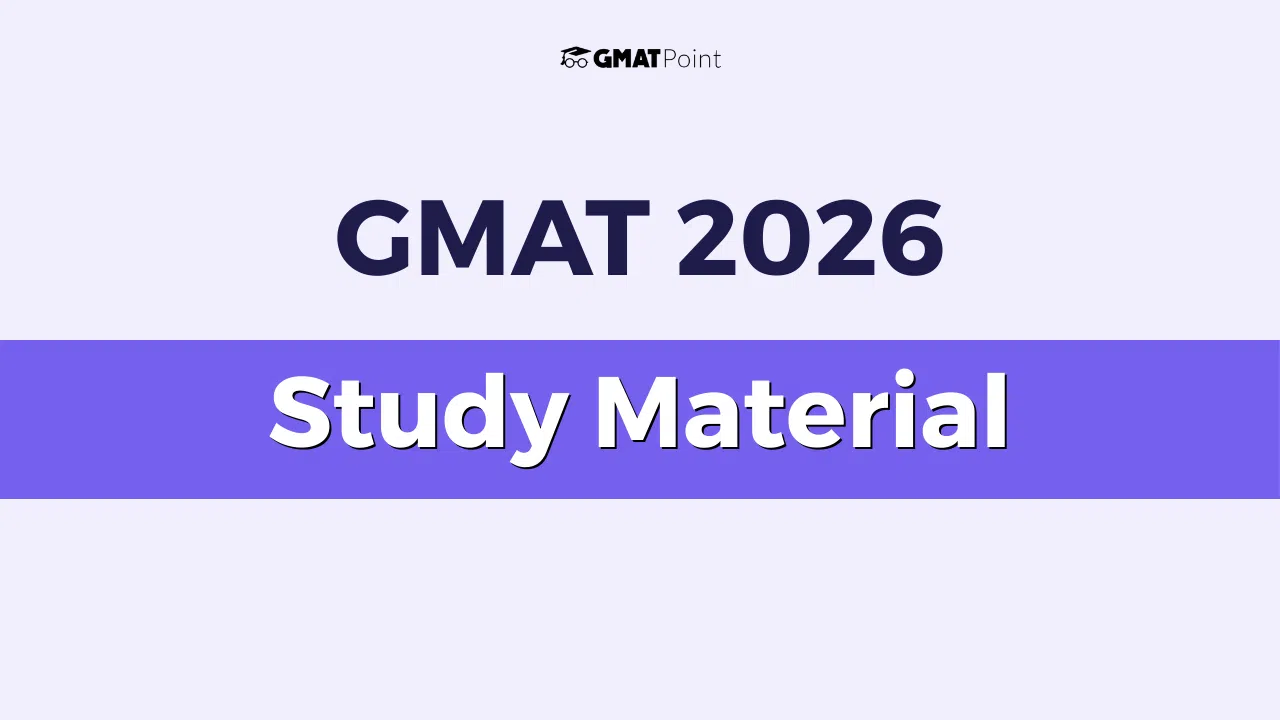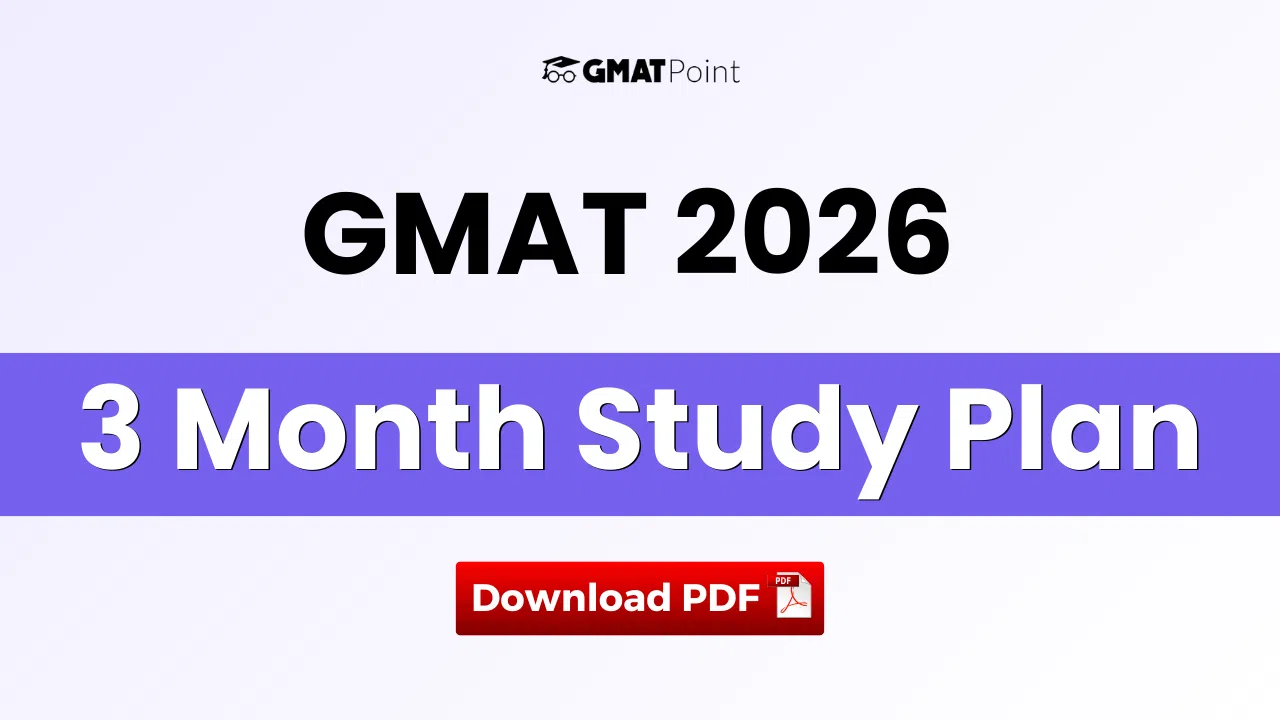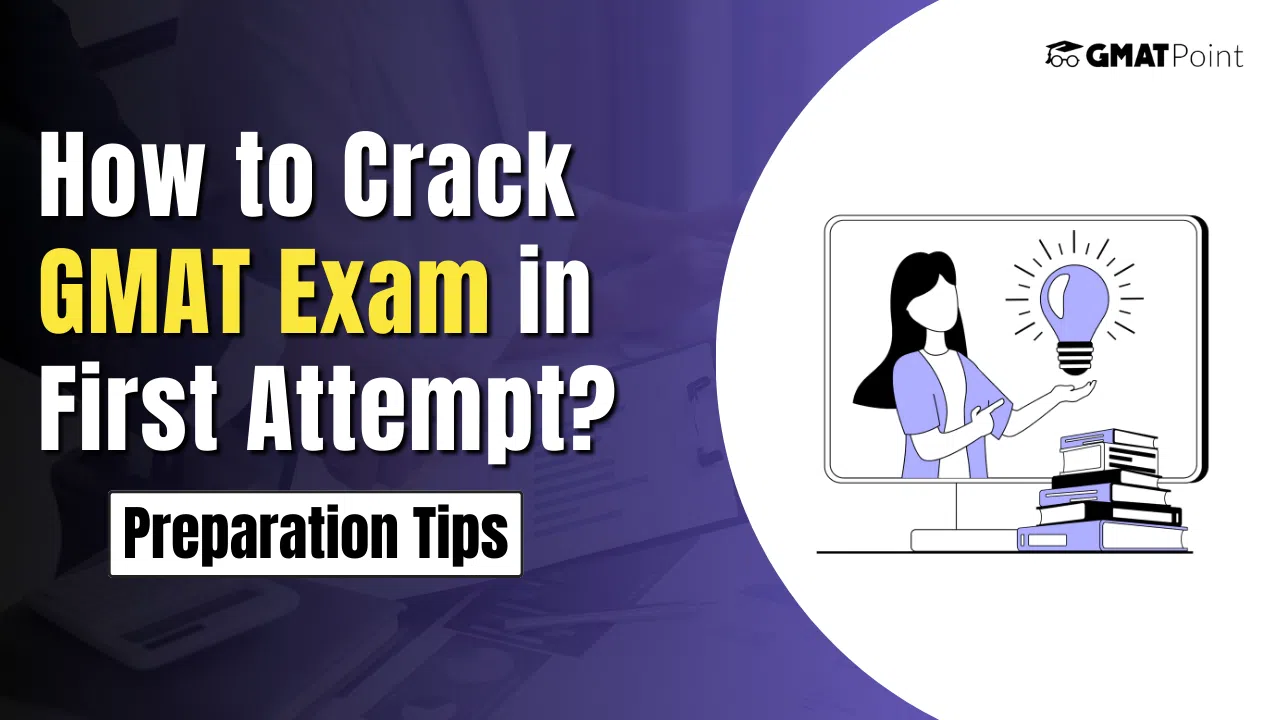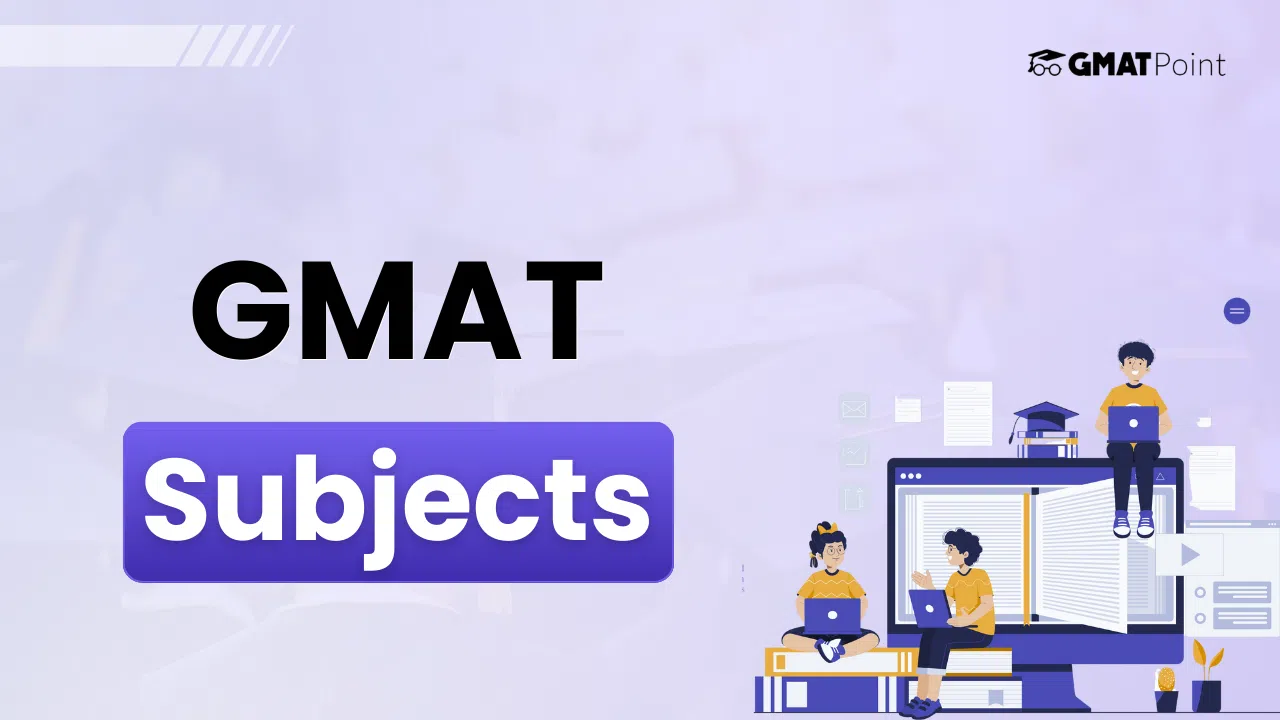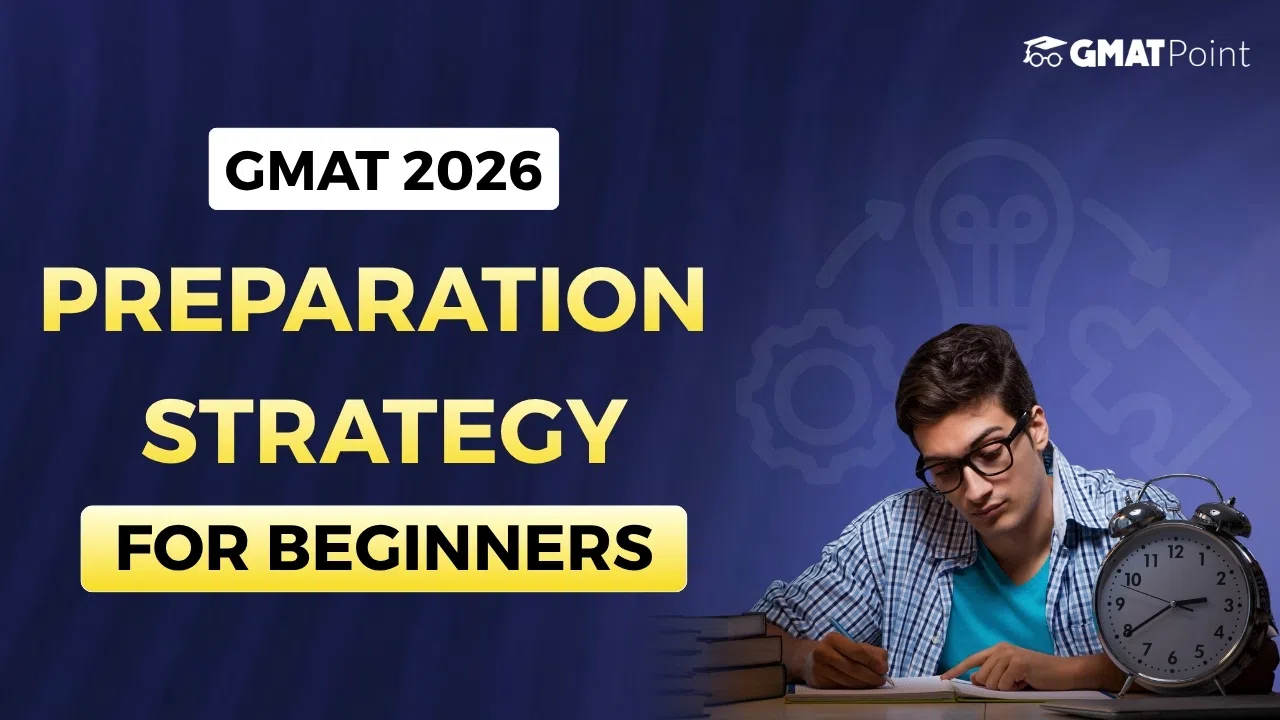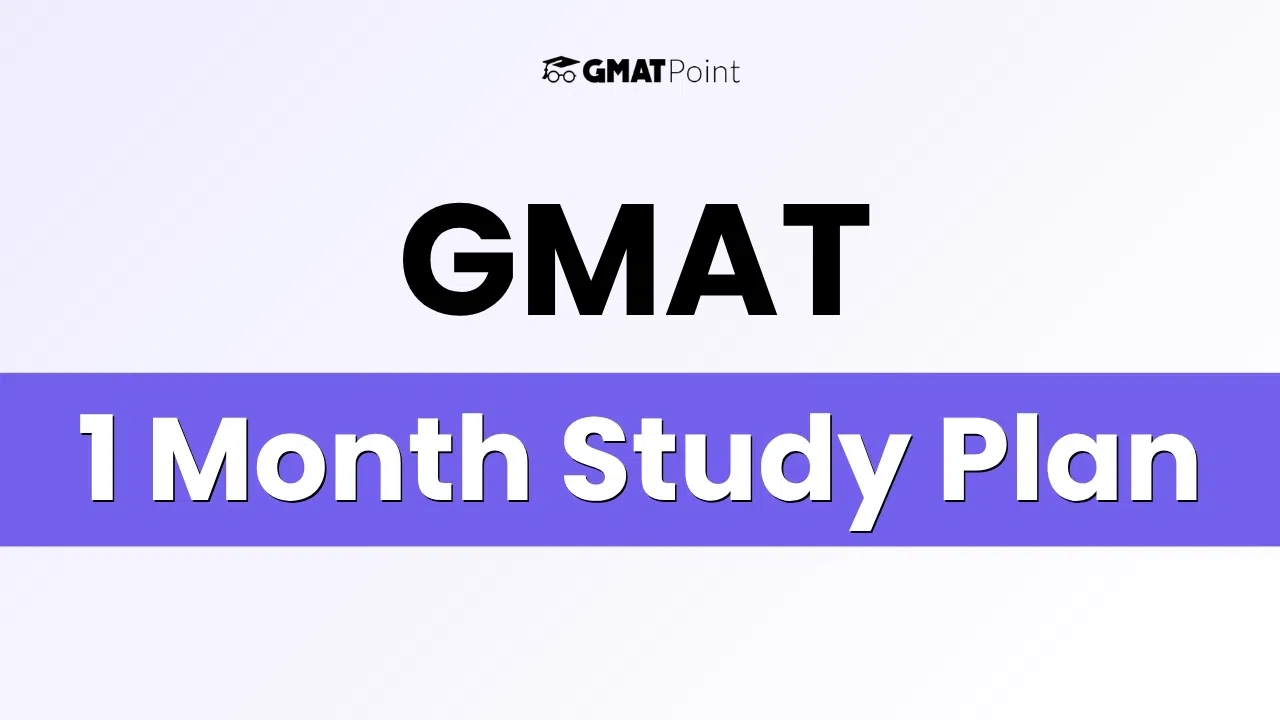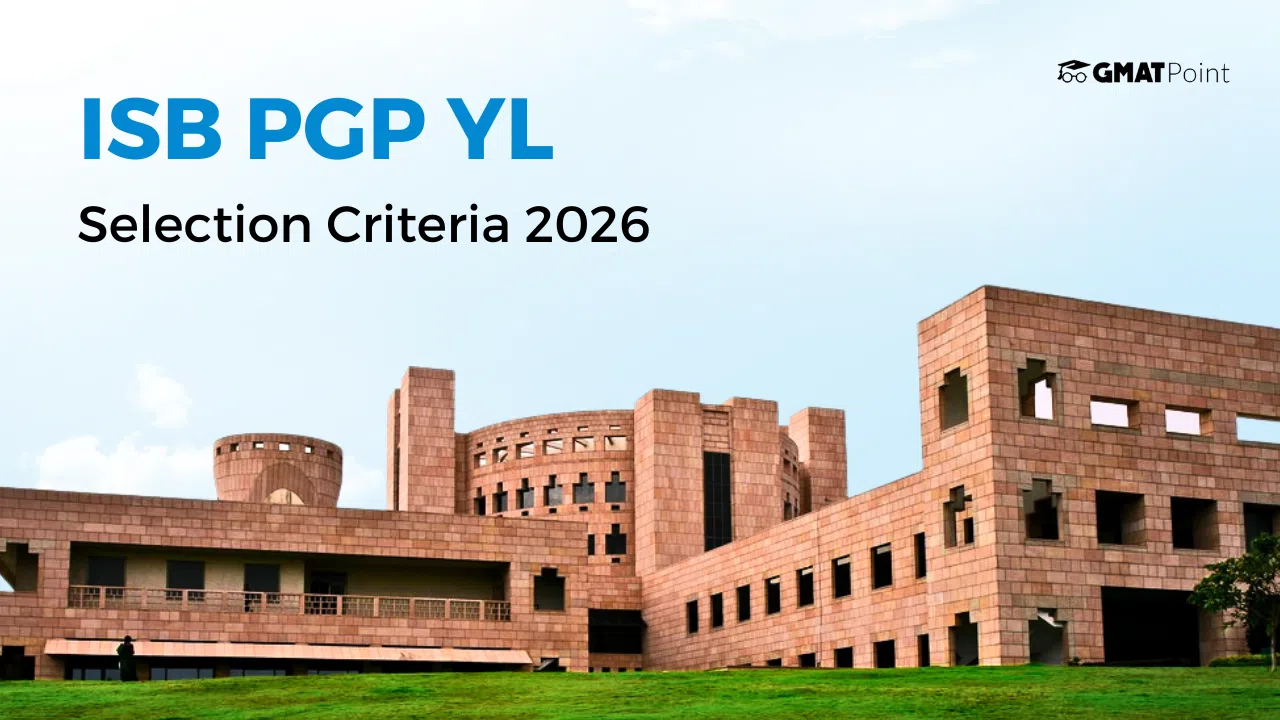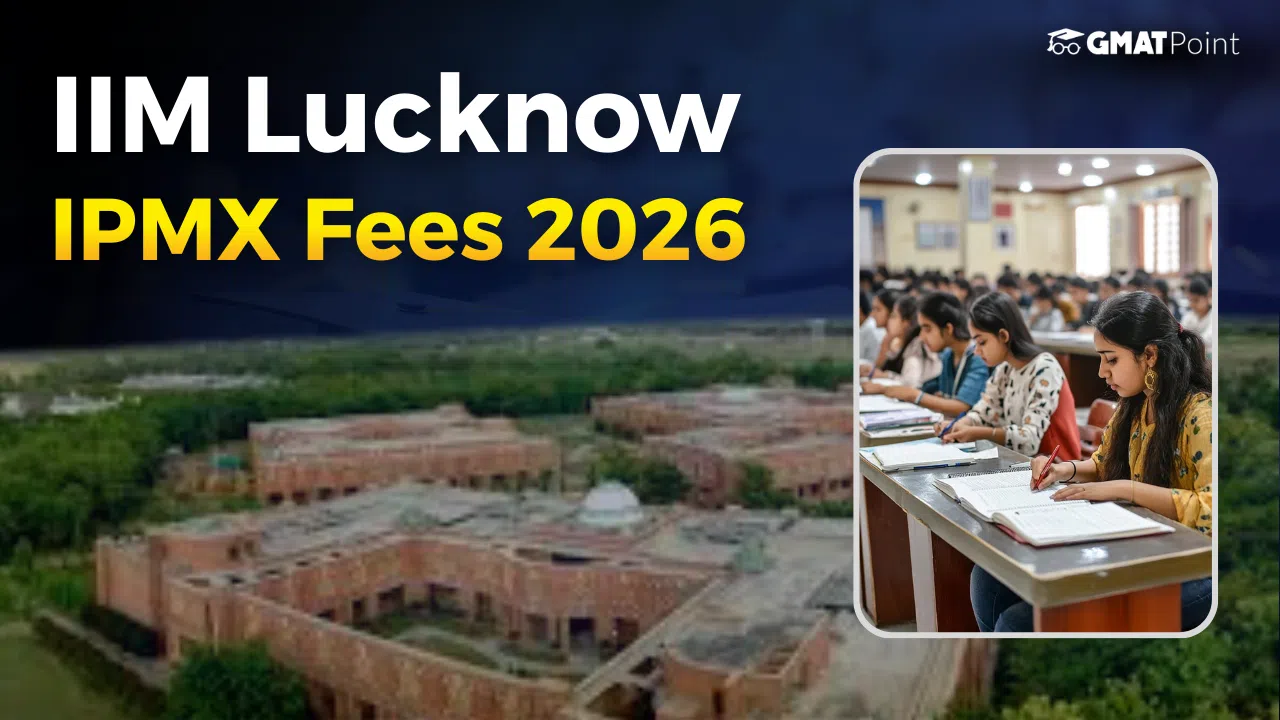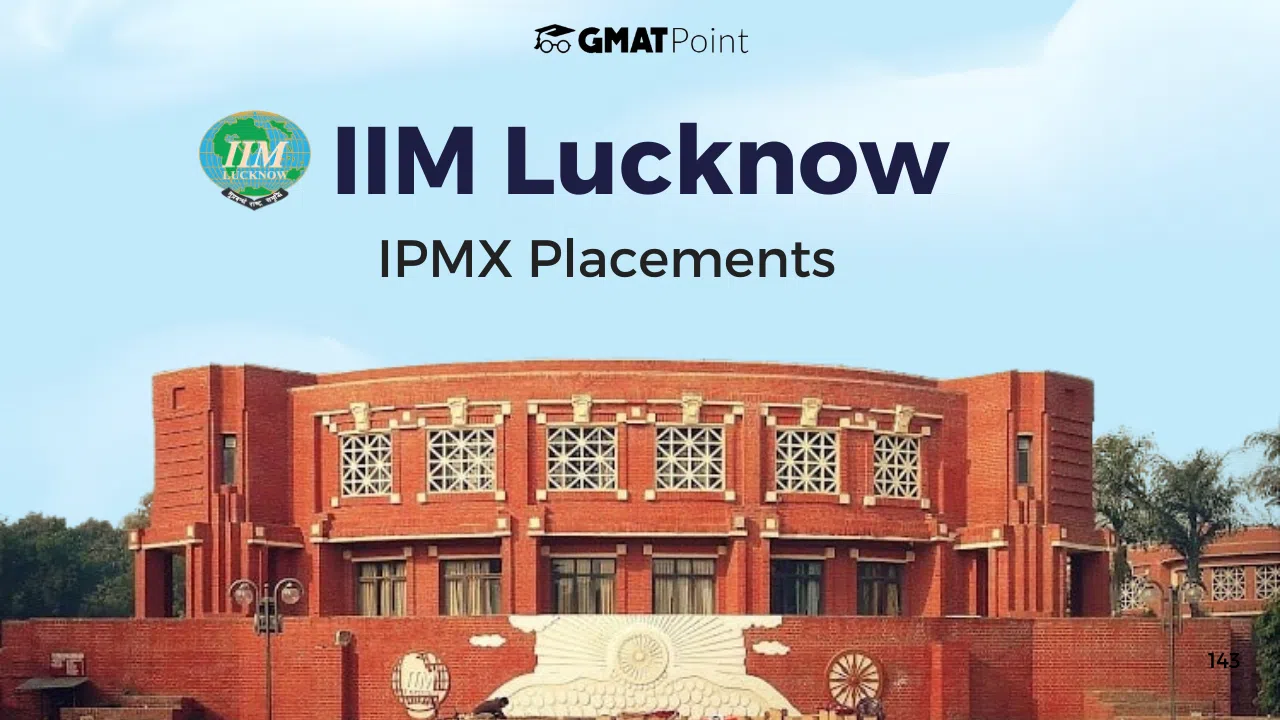GMAT Preparation Strategy 2025
Are you planning to take the GMAT in 2025 but not sure where to begin? The exam may look challenging at first, but with the right preparation plan, it becomes easier to handle. One of the most common questions students ask is how much time is required for GMAT preparation in 2025. The answer depends on your current knowledge and how much time you can dedicate each day. A smart way to prepare is by following a section-wise strategy, where you focus on one part of the test at a time.
This guide will share GMAT preparation tips for beginners, strategies for working professionals, common mistakes to avoid, and the average preparation time needed in 2025. By the end, you will have a clear idea of how to create the best GMAT preparation strategy for yourself.
What’s the Best GMAT Preparation 2025 Strategy?
If you are preparing for the GMAT in 2025, you will be attempting the GMAT Focus Edition. This version is shorter, has fewer questions, and even allows you to review and change your answers. To score well, you need a clear plan. Here are some strategies to guide your preparation:
- Understand the Exam Format: The first step is knowing what you’re preparing for. The GMAT Focus Edition has three sections - Quantitative Reasoning, Verbal Reasoning, and Data Insights. There are 64 questions in total, and the exam lasts for 2 hours and 15 minutes. Once you understand the structure, you can plan your preparation more effectively.
- Create a Study Plan: A proper study plan makes preparation easier. Start with the basics like math, grammar, and data analysis at least 3 to 5 months before the exam. In the next two months, practice full-length tests and focus on improving speed. In the final month, revise weak areas and take timed practice sessions. Studying for 1 to 2 focused hours daily is more effective than long, tiring sessions.
- Focus on Important Topics: Since the exam is shorter, every question matters. The Data Insights section is new and crucial, so give it extra attention. In Verbal, practice critical reasoning and reading comprehension. In Quant, focus on number properties and algebra, as they appear frequently.
- GMAT Daily Targets: It is one of the best resources to keep you consistent with all the 3 sections of the GMAT exam. GMATPoint provides 5 questions from each section for free.
- Learn Time Management: Time is limited in the GMAT, so practice solving questions quickly and accurately. If a question feels too tough, don’t spend too long on it. Mark it, move on, and return later if time allows. The Focus Edition lets you review and change answers, but this only helps if you manage your time wisely.
- Take Full-Length Mock Tests: GMAT Mocks help you build confidence and stamina. Take at least 4-6 practice tests before exam day. After each test, analyze your mistakes and work on your weak areas. This will make you more prepared for the actual exam conditions.
- Stay Healthy and Calm: Good preparation depends on both your study and your health. Get enough sleep, eat healthy meals, and avoid unnecessary stress. Simple relaxation techniques such as deep breathing or short walks can help you stay calm and focused.
Also, check the GMAT study material
Section-wise GMAT Preparation 2025
Preparing for the GMAT in 2025 becomes easier when you focus on each section separately. The exam has three main parts - Quantitative Reasoning, Verbal Reasoning, and Data Insights. Each section tests different skills, so a section-wise plan helps you practice better and score higher. This guide will take you through each part of the test, explaining what it includes and how you can prepare effectively.
- Quantitative Reasoning: The Quantitative section is 45 minutes long with 21 questions. It checks your ability to solve math problems, reason with numbers, and understand data in charts and tables. Most questions are problem-solving and cover arithmetic, algebra, and basic geometry. To prepare, review key math concepts, practice solving problems quickly, and use official GMAT practice questions.
- Verbal Reasoning: The Verbal section is 45 minutes long with 23 questions. It measures your reading, critical thinking, and grammar skills. The question types include Reading Comprehension (checks how well you understand passages), Critical Reasoning (tests your ability to analyze arguments), and Sentence Correction (focuses on identifying and fixing grammar mistakes). To prepare, read different types of texts, practice spotting grammar errors, and strengthen your logical reasoning skills.
- Data Insights: The Data Insights section is 45 minutes long with 20 questions. It tests your ability to interpret data from tables, charts, and graphs. The main question types are Table Analysis and Graphic Interpretation. To prepare, practice reading data, identifying trends, and making decisions based on numbers using official GMAT materials.
GMAT Preparation 2025: Tips for Beginners
Preparing for the GMAT in 2025 may feel overwhelming at first, especially if you’re just starting out. With the right strategy, resources, and steady effort, you can make your preparation smoother and less stressful. Here are some beginner-friendly tips to help you get started:
- Understand the New GMAT Format: The GMAT Focus Edition (introduced in 2023) is the standard test for 2025. It’s shorter and more streamlined than the old version, with three sections: Quantitative Reasoning, Verbal Reasoning, and Data Insights. Familiarize yourself with this format so you can use the right study materials and plan effectively.
- Start with a Diagnostic Test: Take a practice test at the beginning to identify your strengths and weaknesses. This will help you decide whether to focus more on Quant, Verbal, or Data Insights before making a detailed study plan.
- Build a Realistic Study Plan: Don’t overload yourself in the beginning. Aim for 2 to 3 hours of study per day if you have 3 to 4 months before the exam. Set weekly goals such as mastering fractions, improving reading comprehension, or practicing data sufficiency, and balance practice with review. Consistency is more valuable than cramming.
- Strengthen the Basics First: Before moving to advanced questions, revise your fundamentals. Focus on arithmetic, algebra, and word problems for Quant; grammar and sentence correction for Verbal; and basic data interpretation for Data Insights. A solid foundation makes complex problems easier.
- Use GMAT Resources: Use GMAT online coaching or buy GMAT practice tests. So that, you don’t waste your time looking for resources on random youtube channels.
- Practice Time Management: Pacing is a common challenge. When practicing, aim to solve Quant questions in about two minutes and Verbal questions in about one and a half minutes. Work on building speed without losing accuracy.
- Review Mistakes Thoroughly: After every practice session, analyze your mistakes. Check whether you misunderstood the question, lacked clarity in a concept, or ran out of time. Learning from mistakes ensures you don’t repeat them on test day.
- Balance Study with Breaks: Avoid burnout by taking short breaks between study sessions. Exercise, relax, or do something enjoyable to stay motivated and fresh.
- Join Study Groups or Forums: Communities like GMAT Club and Reddit can give you valuable strategies, updates, and encouragement from fellow test-takers.
- Track Progress and Stay Consistent: Measure improvement through regular practice tests. Celebrate small wins and keep refining your strategy as you move closer to your target score.
Also Check, GMAT Syllabus 2025, Exam Pattern, Section-Wise Syllabus PDF
GMAT Exam Preparation 2025 Tips for Working Professionals
Preparing for the GMAT while managing a full-time job is never easy. Between office deadlines, family responsibilities, and personal commitments, finding time to study can feel overwhelming. However, with the right strategy and discipline, working professionals can balance both work and GMAT preparation effectively. Here are some practical tips for 2025 aspirants:
- Create a Realistic Study Plan: A rigid study plan often fails when work schedules change. Instead, build a flexible weekly timetable. Dedicate 1-2 hours on weekdays and longer sessions on weekends. Break your preparation into small, focused goals, for example, mastering data sufficiency this week and sentence correction the next.
- Use Smart Study Resources: Rather than trying to cover every book, stick to high-quality resources such as the Official GMAT Guide 2025 and trusted online platforms. Short video lessons, flashcards, and question banks can save time and make learning more effective.
- Leverage Commute and Break Times: Don’t underestimate small time slots. Use your commute, lunch breaks, or idle office hours to revise formulas, solve quick questions, or listen to GMAT podcasts. These micro-study sessions build consistency without cutting into family or rest time.
- Focus on Weak Areas First: With limited time, avoid spending hours on topics you already know well. Use mock tests to identify weak areas and prioritize them. Balanced preparation ensures you don’t miss out on easy marks.
- Practice Time Management: The GMAT tests both accuracy and speed. While professionals are used to multitasking, exam pacing is different. Regularly take timed mock tests to simulate the real exam and train your brain to perform under pressure.
- Use Weekends for Mock Tests: Weekends are ideal for full-length practice exams since you can dedicate 3+ hours without work distractions. After each test, analyze your performance, review mistakes, and adjust your study plan accordingly.
- Maintain Work-Study-Life Balance: Avoid burnout. Overworking at the office, followed by long study nights, reduces productivity. Instead, get proper sleep, eat well, and take short breaks. Even 2 focused hours of study are more effective than 5 distracted ones.
- Seek Peer or Mentor Support: Join a GMAT study group or connect with peers preparing for the exam. Accountability partners keep you motivated. If needed, consider online coaching programs designed for working professionals with flexible schedules.
- Stay Consistent, Not Perfect: Don’t wait for the “perfect time” to study; it rarely comes. Even on busy days, revise flashcards or solve 5-10 practice questions. Consistency builds momentum and keeps you connected to your preparation.
- Plan Ahead for Exam Day: Register for the exam well in advance to avoid last-minute stress. Pick a date that aligns with lighter work schedules or vacation time. This gives you a focused 2-3 week window for final preparation.
Also Check , GMAT Sample Paper 2025, Practice Tests With Solutions PDF
Mistakes to Avoid in GMAT Preparation 2025
Preparing for the GMAT is a long journey, and many test-takers unintentionally make mistakes that lower their scores. Knowing these mistakes in advance can save you both time and stress. Here are the most common ones to avoid in 2025:
- Not Understanding the New GMAT Focus Edition: The GMAT Focus Edition (introduced in 2023 and continuing in 2025) has fewer sections and a shorter duration than the old version. Some students still prepare with outdated material for the older format. Always use updated GMAT Focus Edition resources to avoid wasting time on irrelevant topics.
- Starting Without a Clear Plan: Jumping straight into practice tests without a study plan often leads to confusion and burnout. Begin with a diagnostic test, identify your strengths and weaknesses, and then create a weekly study schedule with clear targets.
- Over-Relying on Mock Tests: Mock tests are important, but taking too many without reviewing your mistakes is unhelpful. Real improvement comes from analyzing errors, understanding why you made them, and practicing similar questions until you master them.
- Ignoring Section-Wise Balance: Many students focus too much on Quant or Verbal, neglecting other sections like Data Insights. In the GMAT Focus Edition, all sections carry equal weight. A balanced approach is key to achieving a high score.
- Memorizing Instead of Understanding: The GMAT tests reasoning, not rote learning. Depending only on formulas, shortcuts, or memorized answers won’t work. Focus on building a deep understanding of concepts so you can apply them in different contexts.
- Not Practicing Under Exam Conditions: Solving questions in a relaxed setting is very different from doing so under time pressure. Regularly practice with a timer and take full-length mocks in one sitting to build stamina and handle exam stress.
- Skipping Review of Errors: One of the biggest mistakes is practicing questions without reviewing why you got them wrong. Reviewing mistakes helps you avoid repeating them and sharpens your problem-solving strategy.
- Delaying Preparation Until the Last Minute: The GMAT requires consistent practice. Starting just 1-2 months before the exam adds unnecessary pressure and often results in lower scores. Ideally, allow at least 3-6 months of steady preparation.
- Ignoring Official GMAT Material: While third-party resources can be helpful, official GMAT prep material from GMAC is the most reliable. Skipping these resources can leave you unprepared for the actual exam’s style and difficulty.
- Neglecting Health and Stress Management: Many candidates focus only on studying while ignoring sleep, exercise, and relaxation. Fatigue and anxiety on test day can hurt your performance even if you’ve prepared well. Balance your preparation with good health habits.
How Much Time is Required for GMAT Preparation 2025?
The time required to prepare for the GMAT in 2025 depends on your target score, current skill level, and daily study routine. On average, most students need 3 to 4 months, dedicating about 200 to 250 hours of focused study.
If you already have strong fundamentals in math and English, you may be ready in 2 to 3 months. However, if you are aiming for a score above 700 or starting from scratch, you might need 5 to 6 months. Studying 3 to 4 hours daily can help you finish faster, while studying only an hour a day will extend your preparation timeline.
A practical plan is to spend the first month building your basics, the second month practicing questions, and the third and fourth months taking mock tests and refining your strategy. With consistent effort and smart
planning, 3 to 4 months are usually enough for most GMAT aspirants in 2025.
